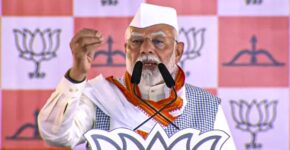Crafting an Effective Ground Strategy for Political Candidates
In the complex and dynamic world of political campaigns, a solid ground strategy is essential for any candidate aiming to secure a win. This involves a combination of direct voter engagement, community involvement, and effective use of resources. Here’s a comprehensive guide for crafting an effective ground strategy for political candidates:
1. Understanding the Constituency
The first step in any successful ground strategy is understanding the constituency. This includes:
- Demographics: Analyze the age, gender, income levels, education, and other demographic factors.
- Key Issues: Identify the pressing issues and concerns of the constituency through surveys, focus groups, and feedback from community leaders.
- Historical Data: Review past election results, voter turnout, and historical voting patterns.
2. Building a Strong Ground Team
A dedicated and well-organized ground team is crucial. This team should include:
- Volunteers: Recruit enthusiastic and dedicated volunteers who are familiar with the community.
- Field Organizers: Appoint experienced field organizers to manage different regions of the constituency.
- Community Leaders: Engage local community leaders and influencers to build trust and credibility.
3. Voter Outreach and Engagement
Direct voter engagement is the heart of a ground strategy. Implement the following tactics:
- Door-to-Door Canvassing: Organize door-to-door visits to engage with voters personally, listen to their concerns, and explain your policies.
- Phone Banking: Use phone banking to reach out to voters, particularly in areas where door-to-door canvassing may not be feasible.
- Town Halls and Public Meetings: Host town halls and public meetings to interact with voters, address their questions, and discuss your vision for the constituency.
- Community Events: Participate in local events, festivals, and gatherings to increase visibility and build rapport with the community.
4. Effective Use of Technology
Leverage technology to enhance your ground strategy:
- Social Media: Use platforms like Facebook, Twitter, and Instagram to engage with voters, share updates, and run targeted ad campaigns.
- Mobile Apps: Develop a campaign app to provide voters with information, volunteer opportunities, and event notifications.
- Data Analytics: Use data analytics to track voter engagement, monitor the effectiveness of outreach efforts, and adjust strategies as needed.
5. Grassroots Fundraising
A strong financial foundation is essential for a robust ground strategy. Focus on grassroots fundraising:
- Small Donations: Encourage small donations from a large number of supporters. This not only raises funds but also builds a sense of ownership among voters.
- Fundraising Events: Organize fundraising events such as dinners, charity runs, and auctions.
- Online Campaigns: Utilize crowdfunding platforms and social media to run online fundraising campaigns.
6. Coalition Building
Building coalitions with various community groups can amplify your reach and influence:
- Interest Groups: Collaborate with interest groups that align with your policies and values.
- NGOs and Nonprofits: Partner with local NGOs and nonprofits to address community issues and demonstrate your commitment to social causes.
- Local Businesses: Engage with local businesses to gain their support and address their concerns.
7. Monitoring and Feedback
Continuous monitoring and feedback are vital for refining your ground strategy:
- Surveys and Polls: Conduct regular surveys and polls to gauge voter sentiment and adjust your strategy accordingly.
- Feedback Mechanism: Establish a feedback mechanism for volunteers and supporters to share their insights and suggestions.
- Performance Metrics: Track key performance metrics such as voter contacts, event attendance, and fundraising progress.
Conclusion
An effective ground strategy is a blend of personal engagement, community involvement, and strategic use of resources. By understanding the constituency, building a strong ground team, engaging with voters, leveraging technology, focusing on grassroots fundraising, building coalitions, and continuously monitoring progress, political candidates can significantly enhance their chances of success. Remember, the key to a successful campaign lies in connecting with voters on a personal level and addressing their needs and concerns.



